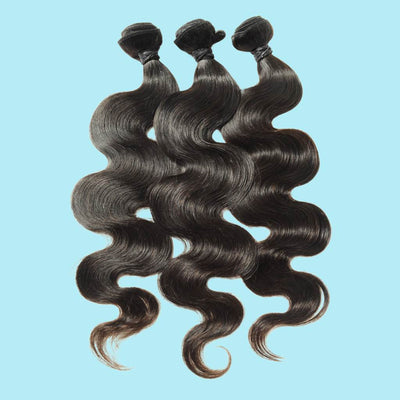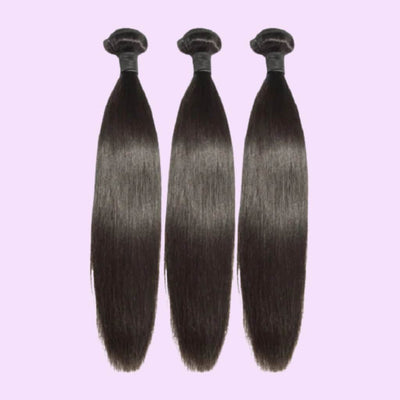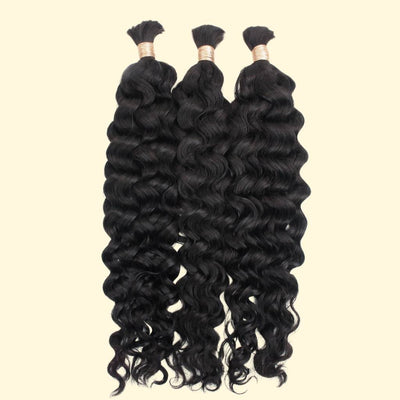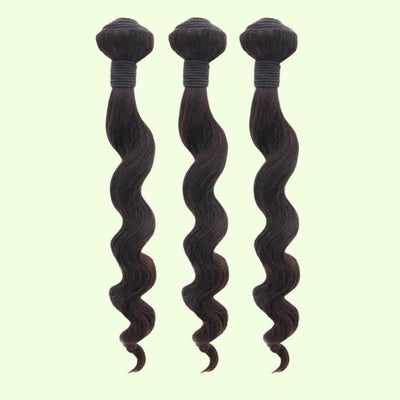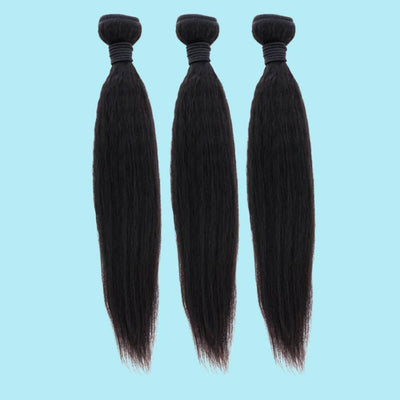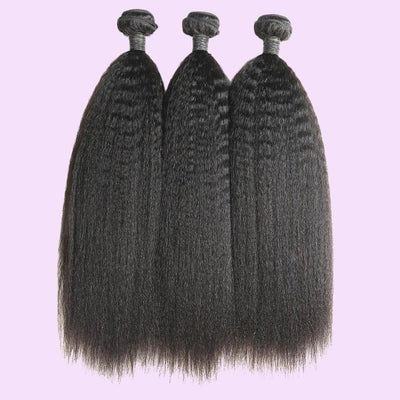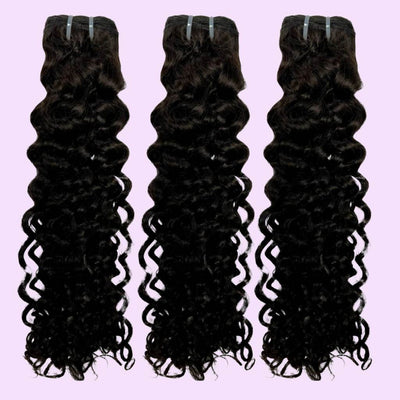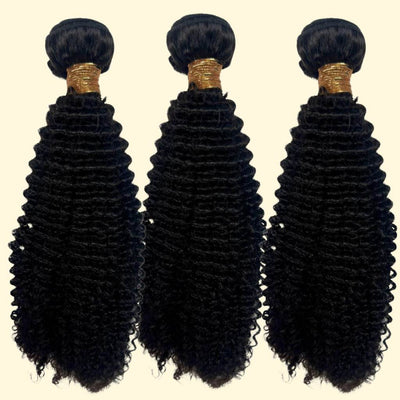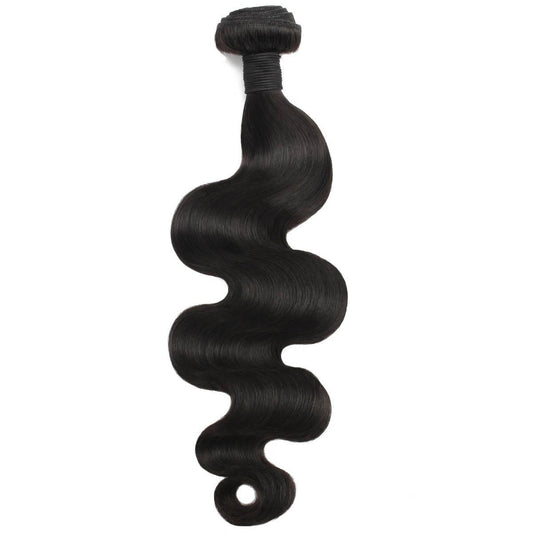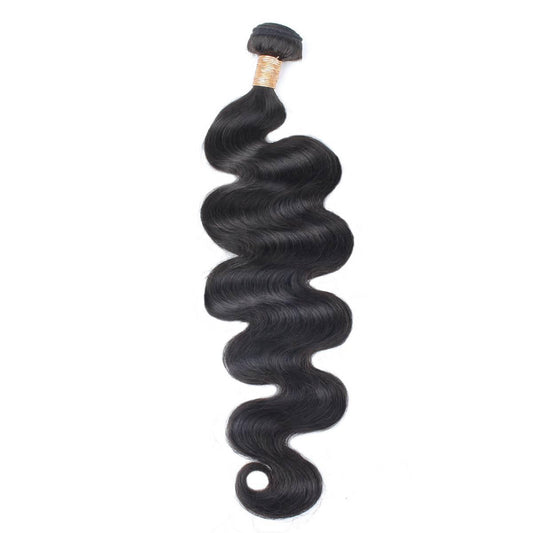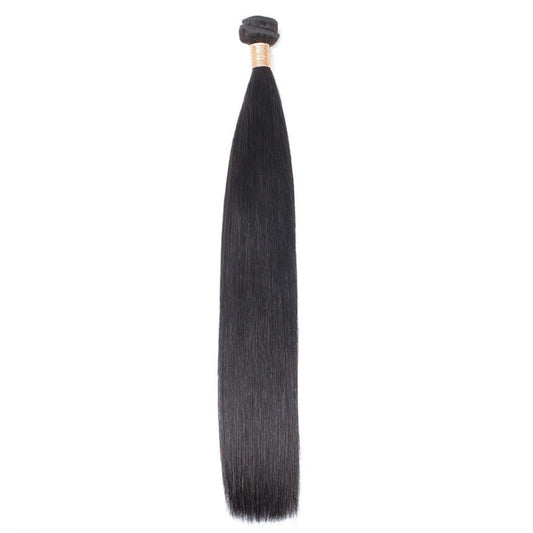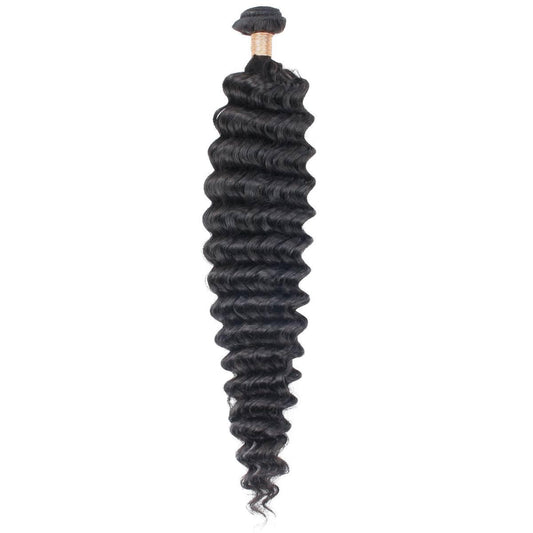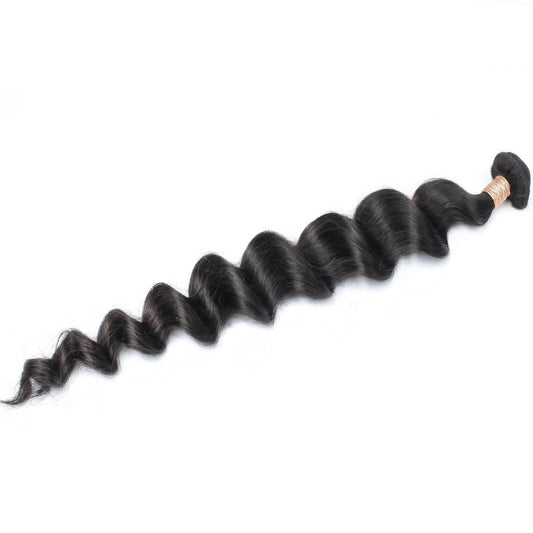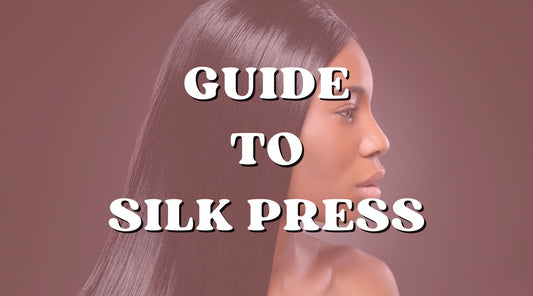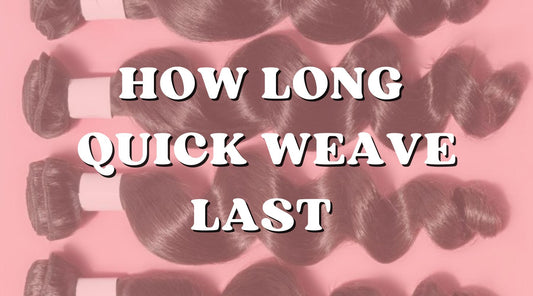1260 Memorial Drive
Atlanta, Georgia 30316
404-458-1330
Are You Allergic to Hair Extensions? Find Out Now!
Mikey MoranLet's talk about allergic reactions!
I have learned throughout the years that allergic reactions occur in different variations.
An allergic reaction to hair extensions doesn't always have to be as dramatic and life-threatening as it looks on TV.
During my experience, I didn't go into anaphylactic shock, but I did have itching, swelling, and blurred vision. ❤️🩹
There's only one kind of hair that I've been allergic to. It was a colored synthetic brand I had never used before, and I didn't realize my allergy until much later.
One night, about a week after I got my hair done, I had a rash on my neck. It was barely noticeable but very itchy.
When I went to a doctor, they asked me if I had done anything new with my routine.
I told them I had gotten a new hairstyle, and they immediately told me the new hair was the cause.
Allergies are serious, and we're here to help you see if you have one!

Is It Possible to Be Allergic to Hair Extensions?
The quick answer to this is yes.
It's possible to be allergic to just about anything. Sometimes, allergies regarding hair stem from different things, such as the fitting of the wig cap or the wig cap material.
That's only if you use a hair wig. If you don't use a wig, plenty of other things could be causing your allergy.
Hair glue and braiding hair are common culprits. Sometimes, it's not even the hair itself but a combination of product and material mixed with the hair that causes the allergic reaction.
It is possible to be allergic to many things, and it is essential to understand and consult with a doctor if you have any issues.

Be Cautious of New Material
When trying new things, looking out for any adverse reaction to the new products is always important.
It's just like adjusting your skincare routine; you want to ensure you're not allergic to the new products.
It's important to remember that just because you've had a variation of a particular product before doesn't mean you won't be allergic in the future.
For example, I've worn synthetic hair before and never had an allergic reaction until I tried that colored synthetic hair. The variations of hair can affect the way you react to the hair.
Be mindful of each new thing you use. It is also important to know that different hair products can cause an allergy as well.
The moment you experience discomfort is the moment you need to remove it from your head, no matter how expensive it may be.

Symptoms of an Allergy
The symptoms of an allergy vary from person to person.
When a person is allergic to something, various symptoms can occur, such as swelling, itchiness, and redness.
Sometimes, the symptoms will show up in a concealed place. For example, when I learned that I was allergic to that brand of synthetic hair, I didn't see any immediate reactions, but I did realize that my scalp was itchier than usual.
That's a good clue to switch to human hair bundles instead.
I couldn't see the redness or the rash on my scalp, so I didn't overthink it. I had assumed that my scalp was dry.
Pay attention to any changes or discomfort when trying out a new hairstyle.
Sometimes, deeper issues can arise if the allergy is not treated quickly enough.
Some of the worst allergy symptoms include abdominal pain, such as cramps, nausea, and vomiting. Always visit a doctor if your symptoms are persistent.

Human Hair Vs. Synthetic Hair
Human hair and synthetic hair can both cause allergic reactions.
Human hair is the extension type that is less likely to give you an allergic reaction since it's made with human hair. However, the products used on human hair can cause a reaction.
Synthetic hair is more prone to give an allergic reaction because of the fibers it's made from.
This is why stylists suggest using human hair extensions rather than synthetic hair.
They look better, feel better, and usually won't cause issues. However, human hair is more expensive and will last longer, so keep that in mind when choosing extensions.

Allergies Related to Human Hair
The first thing to be aware of when it comes to human hair extensions is that sometimes, human hair isn't 100% human.
This one time, my friend paid a hefty price for what she assumed to be human hair. When she received the human hair, it looked beautiful.
There was nothing wrong with the hair; it even felt as silky as human hair usually does. It wasn't until the installation that her allergic reaction occurred.
She had gone to style her hair and found pieces of the hair on her straightener.
Some of the hair had melted, which is not typical for human hair but very common for synthetic hair.
Unfortunately, the hair she bought was mixed with synthetic hair, although it had been labeled as 100% human hair.

Credibility
When shopping for human hair, buy from a credible source.
A credible vendor will sell you 100% raw human hair. This mixing of hair is one reason that allergies to human hair occur.
Another reason is the installation method and the products used. Previously, I said it's possible to have an allergic reaction to anything.
When human hair is installed, many things go into it (thread, lace glue, braiding hair, etc.) Remember that it's unlikely for human hair to be the cause of the reaction.
Typically, it's the products used.
Despite all this, human hair is still your best bet when choosing extensions.

Allergies Related to Synthetic Hair
Synthetic hair is composed of fine plastic fibers made to look like human hair.
The texture is also sometimes created from a collagen protein. More commonly, manufacturers usually use a single type, monofilament fibers, or a combination of polyfilament fibers.
Acrylic and polyester are also used to make these fibers. There are different types of synthetic hair, and all of them can cause an allergic reaction.
The best thing to do is to make sure that you pay attention to the signs of an allergy while trying different types of hair.
Consult with a Professional
It is essential to consult with a professional if you have any issues with anything at all.
A doctor can identify the kind of reaction you're having and prescribe medicine.
Another professional to consult would be a dermatologist.
A dermatologist can do an allergy test, and they can usually pinpoint what's causing the reaction or recommend a medical wig.
The other type of professional you can reach out to is a hairstylist. Your hairstylist can help you test the hair, but always consult a doctor for medical advice.
Also know what to use as extensions for frost hair color.

What to Remember
Allergic reactions are serious and should not be taken lightly because they can lead to larger problems.
When it comes to hair extensions, various things can cause a reaction.
It is less likely that human hair will be the culprit; however, sellers aren't always honest about their products and mix synthetic hair to gain a larger profit.
Be mindful and read reviews when choosing hair. Also, remember products can cause reactions as well. 💔
If you experience any of these, it is essential to consult with a professional.
They will be able to help! Let us know if you have any questions!
Or drop by our Atlanta Showroom and let's chat together.

